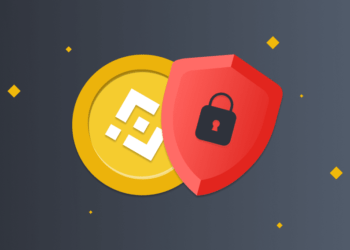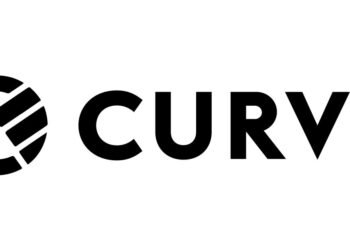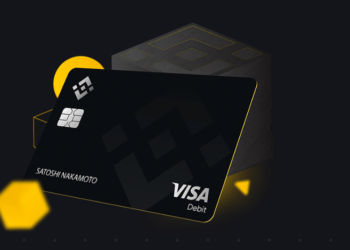What are cryptocurrencies?
Cryptocurrencies are digital tokens that carry value. Like a 100 koruna banknote, which is nothing more than a physical token, a piece of paper that is worth 100 crowns because we agreed on that.
The problem with digital currencies is that they are purely electronic. Just as a photo can be copied and replicated over and over again on the Internet. However, this would mean a loss of rarity and thus a token value.
In order for cryptocurrencies to carry value, they must be distinct and impossible to replicate.
This is possible thanks to a technology called blockchain.
What is a blockchain?
Blockchain is basically a record book on which all the history of a given cryptocurrency is written. By keeping a record of the history of currency activity, it is essentially not possible to counterfeit it.
To prevent counterfeiting, most blockchains are open source and decentralized.
- Open source - Open source software is open source software, anyone can get it and see how it works.
- Decentralized - Blockchains are operated on by many different people who live around the world. With public blockchains such as Bitcoin, anyone can start operating a "node," a blockchain node, whenever they wish. However, this does not affect the operation of the original blockchain. This prevents counterfeiting by external actors.
The blockchain name itself is a reference to how this system works.
Block - Block
 In this context, you can think of blocks as a kind of data container. Blockchain transactions are a mess of data, mostly consisting of the addresses of the recipient's and shipper's wallets and the amount of currency sent.
In this context, you can think of blocks as a kind of data container. Blockchain transactions are a mess of data, mostly consisting of the addresses of the recipient's and shipper's wallets and the amount of currency sent.
Whenever you make a transaction, this information is stored in a block. Since then, it cannot be changed or deleted, thus guaranteeing the reliability of the transaction.
When the block is ready, it is added to the blockchain in a similar way as you would send a package to a warehouse.
Chain
All the blocks are joined together by a bond that makes them a kind of string. One by one, they follow each other and shape the overall history of cryptocurrency. Each block has a number and everyone can look at it at any time and check the transaction.
At the time of writing, the Bitcoin blockchain consists of nearly 550,000 blocks. You can view most of them here.
Most blockchains have one undivided chain. However, others are a little more complicated. Some have a main chain, but also secondary chains, and others use a kind of network structure instead of a single stream.
Not all blockchains work exactly the same, and besides, not all cryptocurrencies use a blockchain. However, the basic principles and their consequences are mostly the same.
How to get to cryptocurrencies
The popularity of cryptocurrencies is growing every day, and more and more people are trying to make careers in cryptocurrencies. The first thing these people need to think about is whether they want to become a cryptocurrency broker who trades in cryptocurrencies, or whether they want to start or work for a crypto company.
Cryptocurrency brokers
Becoming a cryptocurrency broker is relatively easy. All you have to do is have enough money to buy one or two Bitcoins and you're basically there. Then you can start focusing on how best to increase your capital. With crypto trading still a relatively new area, the rules that you need official paperwork to trade are not really good in this industry. It may be a good idea to discuss this with your legal counsel if you are going to start a big deal.
Cryptocurrency startups
Cryptostartups are mostly interested in experienced engineers who have either already worked in the field or are interested in blockchain technologies. But even if it's not the fintech of your area, it doesn't mean the end of your hopes. As with most startups, these companies hire people for marketing, operations, customer support, business development and various positions of this type that do not require too much technical training. Recruitment managers are mostly interested in gentlemen and ladies who are learning new things quickly, are interested in Bitcoin and blockchain and like to discuss the latest trends in the crypto community.
Whatever path you choose, keep in mind that the most important thing is to know as much as you can about Bitcoin, its protocols, its regulations and, above all, how to avoid fraud. It might also be in your best interest to start networking with other crypto enthusiasts who can help you learn and develop your skills. A great way to work on both of these points is to read everything you can about new trends in the crypto, subscribe to as many newsletters as you can, and actively engage in a variety of communities focused on the topic.
Cryptocurrency communities
- Meetup groups: Meet other crypto enthusiasts in your city, discuss blockchain, new trends and try your luck with recruitment managers.
- Facebook groups: Discuss the crypto with people around the world, share articles, start discussing, asking about investments, the future of the crypto and more
- Reddit threads: Learn about the news and the latest conversations in the crypto world, and while you're at it, throw something into your debate.
- Telegram messenger app: The Telegram offers a number of different channels on cryptocurrency and blockchain, where you will find a number of newsletters, educational posts, entertaining polls, video interviews with crypto experts and much more.
- Investment clubs: Collaborate with like-minded investors, plan strategies when to deposit and when to withdraw, maximize your earnings.
Cryptocurrency mining
A lot of computing power is needed for the cryptocurrency system to work. The transactions really cannot verify themselves yet. Likewise, the blocks themselves do not join the blockchain on their own initiative. Someone has to do it for them. This process is called cryptocurrency mining.
Different cryptocurrencies may have different mining systems. The two most popular are:
- Proof of Work: This type of mining involves miners tackling difficult cryptographic tasks, trying to determine the nature of the upcoming block. If they solve the task correctly, they will verify the block and they can then attach it to the blockchain. It is a relatively simple and safe mining system, but it is very inefficient. Miners compete with each other instead of working together, which very often causes large losses of energy and computing power. This system uses Bitcoin, for example.
- Proof of Stake: This type of mining requires its users to keep their coins in special online wallets. The coins in these wallets then interact and mine new blocks. It's a fairly effective way to mine coins. However, the main disadvantage is that it is quite a complicated process and motivates people to accumulate coins instead of circulating. Ethereum uses a hybrid of Proof of Stake and Proof of Work.
Cryptocurrencies always offer their miners various rewards to motivate them. This reward usually represents a certain amount of new coins that they receive or may receive some share of the fees that will be paid for the transactions they have mined.
When researching a coin, always look at the mining system it uses. This is because it directly affects the price of coin. Example: higher mining fees can mean higher inflation and a gradual decline in coin value. News about the upcoming transition from one mining method to another may also boost the price. Proof of Work> Proof of Stake could mean that everyone starts buying coins so that they have something to profit from after the transition.
Alternative cryptocurrencies - altcoins
Many cryptocurrencies only attempt to replicate the success of Bitcoin. However, there are some that offer something new. There are not many of these altcoins, here is a short list of those that are currently popular.
- Ether (ETH) or Ethereum: Ethereum was specifically designed to harness the potential of blockchain to implement "smart contracts". These allow users to create commands that 100% will reliably execute automatically without the need for a third party.
- Ripple (XRP): Ripple was developed to handle international money transfers. It allows almost instantaneous and cheap movement of value around the world. Today, it is used by a number of banks and international companies for international payments, which are thus much cheaper and faster.
- Dogecoin (DOGE): As the name suggests, this coin is based on the good old Doge meme from 2013. At first, it was really just a joke, mostly used as a little bit on the internet. The biggest joke, however, is that Dogecoin has built a market capitalization of several billion dollars.
- Golem (GNT): Golem uses blockchain technology, which, to put it simply, allows you to turn your home PC into a supercomputer. It achieves this by using a global supercomputer network made up of mobile phones and home computers, but of course not for free.
- Monero (XMR): Monero was designed as an absolutely secure, private and untraceable cryptocurrency that allows anyone to make untraceable and anonymous payments anytime, anywhere.
- IOTA (IOTA): This extremely ambitious project aims to become the so-called "internet of things" cryptocurrency. This means that by connecting different types of devices, it is trying to create a global network, a kind of system to replace the blockchain and enable microtransactions and smooth communication between technologies.
Where can I use cryptocurrencies?
Cryptocurrencies can be used in several ways.
Their original meaning
If nothing else, you can always use the cryptocurrency in the context in which it was originally intended. For bitcoin, for example, it would simply mean holding it and buying other cryptocurrencies with it.
For Ethereum, this could mean driving smart contracts, which consumes a small amount of Ether as a form of charge.
This is always the case for those 1000+ cryptocurrencies and their uses can be different.
Purchase of products and services
Do you pay in cash, by credit card or cryptocurrency?
Many traders and merchants today accept cryptocurrencies as a payment method, but most of them only apply to the most popular currencies, such as Bitcoin.
This way you can buy from furniture from Craigslite to electronics from Alza. Sometimes you can even pay cryptocurrency on the spot using a mobile wallet and QR code.
Money transfer and cryptocurrency
Why would you need cryptocurrencies to transfer money? The better question is why not.
Some cryptocurrencies are specifically designed to make their transfers as fast and cheapest as possible. Example: Nano (formerly known as RaiBlocks) offers you 100% secure money transfers in seconds, all free of charge.
Can your bank handle it?
Or if you want to send money to someone who doesn't run cryptocurrencies, use Stellar Lumens. This coin guarantees cheap and fast transactions, which at the same time convert your cryptocurrency straight into the fiat currency of your choice.
On the second point, some cryptocurrencies are so fast that they are used as tips on the Internet (such as Dogecoin) and have built their own platforms. At the touch of a button, users can give a tip for any fun or informative post on Reddit, Twitter and more.
This may seem insignificant to you, but it means one very interesting thing. Thanks to the blockchain, people send as little as 10 cents around the world for the first time in history. Previously, such small coins would be eaten up by fees for international transactions.
Possibility of investment
Leaving aside all the uses mentioned so far, we still have one of the biggest reasons why people are interested in cryptocurrencies, and that is their potential in investment.
The huge up and down jumps that are typical of cryptocurrencies have attracted an impressive number of investors of all kinds.
- Short-term - Cryptocurrencies are extremely volatile and change very quickly. An investor who learns to predict (or reshape) market movements can earn a lot by buying cheaply and selling expensively.
- Long-term - These investors buy coins and hold in the belief that the amount they have invested will increase many times over the years.
- Futures traders - Regulated futures trading has already come into the cryptocurrencies. Investors can make all sorts of dog pieces with margins, leverage and make money without even owning any coins.
What to watch out for
Cryptocurrencies do not only have advantages. When handling cryptocurrencies, you need to be careful about how, otherwise you risk losing everything.
Survey
Before you buy a cryptocurrency, do some research. No guide will give you everything you need to know. Each argument always finds its counter-argument, whether in another article or in the same.
Always base your decision on an informed position. Read instructions, reviews, try to invest smaller amounts before you throw yourself into it.
Keep your money safe
No police or judiciary protects cryptocurrencies. It is a practically unregulated sphere in which no one will help you if you let yourself be fooled and robbed.
The freedom that comes with the absence of government influence and banks is not free. With more freedom comes more responsibility. Here are some tips to keep your money safe:
- Check the wallet address properly and at least twice before sending the crypto.
- Never hand over a product or perform a service until the transaction is written to the blockchain. This can mean waiting a few minutes on some blockchains.
- Keep your wallet as safe as possible, whether it's hardware or software (in the case of software, watch out for viruses and malware).
- Never lose your password and recovery seed to your wallet. Otherwise, you may lose all your invested money forever.
Unpredictable price
Bitcoin and cryptocurrencies are highly volatile assets. Therefore, always keep in mind that although there are different market forecasts, they are always estimates. Don't invest more than you are willing to lose.
Understandably, the volatility of cryptocurrencies may also work in your favor, but this is usually the side of the coin that new investors overlook. Besides, just because you hit the right place doesn't mean you're a good investor. Don't rest on the laurels of your "successes".
Cryptocurrency glossary
A - H
Bitcoin - Digital cryptocurrency using peer-to-peer technology for near-instantaneous payments. Bitcoin was invented by an unknown programmer, or a group of programmers under the pseudonym Satoshi Nakamoto.
Bitcoin address - Also known as key, this address is a password composed of letters and numbers that is used to trade Bitcoin. Public addresses usually start at 1 or 3, while private addresses usually start at 5 or 6.
Bitcoin exchange office - An online website where you can buy and sell and buy Bitcoin for other cryptocurrencies.
Blockchain - A public digital ledger (accounting book) on which the entire history of the cryptocurrency is recorded chronologically.
Block reward (block reward) - the amount of cryptocurrency that the miner receives for solving the hash.
Digital wallet - Sometimes an e-wallet, too. It is a system or application that serves as a method of storing cryptocurrency. It keeps a record of transactions, payment details and all under a password.
Hash - A computational task that the cryptocurrency miner must solve in order to add another block to the blockchain.
I - O
Cryptocurrency - Digital currency, for the use and generation of which encryption technologies are used. Unlike fiat currencies - such as US dollars, euros or yen - cryptocurrencies are not regulated or controlled by any government or company.
P - Z
Proof of work - A mining system in which miners solve complex cryptographic tasks to subsequently include a block on the blockchain as a reward.
Proof of stake - A mining system that lets its miners store a specified amount of cryptocurrency (stake) in a special wallet. Thanks to this bet, the consensus algorithm will then take care of the verification of the block of transactions.
History of cryptocurrencies in brief
The road to cryptocurrencies begins in the 1980s. In order to protect the money of smaller shops and petrol stations, banks have begun to promote a payment method that would replace cash, namely the credit card payment method.
Later in the 90's, came a new payment method that was web-based, still used today: PayPal. This gave merchants the opportunity to accept credit card payments online, which led them to the idea of transferring fiat currencies directly between the shipper and the recipient completely online. When PayPal proved that the web was a usable medium for currency conversion, similar services emerged, such as WebMoney (a Russian alternative to PayPal) or e-Gold (an American company that allows its users to buy gold online).
In the early 21st century, after the FBI closed e-Gold, cryptocurrencies began to emerge. In the beginning, it was just an idea that originated in the then cryptographic community, their users even called themselves Cypherpunks. However, among these Cypherpunk were also relatively well-known names, such as Julian Assange, the founder of WikiLeaks, or Jacob Appelbaum, the developer of Tor.
However, none of these enthusiasts had enough inertia, perhaps not even interest, to throw cryptocurrencies into the public eye. It wasn't until 2008 that a document called "Bitcoin: A Peer-to-Peer Electronic Cash System" appeared. The author of this document was a kind of Satoshi Nakamoto.
During the following years, Bitcoin grew and the number of cryptocurrencies on the market grew, newspapers began to be written about it, and the word Bitcoin more than once appeared on television.
Today, there are many cryptocurrencies that seek to remedy all kinds of world problems, from economic to environmental. There are applications, web services, media projects and we are still at the beginning. Who knows what cryptocurrencies will bring us in the coming years.
Problem with centralization
If you already have something about cryptocurrencies and Bitcoin loaded, then you have probably come across the term decentralization. To understand what decentralization is, it is first necessary to explain the issue of centralization.
When we look at today's world we inhabit, the world of information and data about us, about who we are, what we do, what we are like, we notice that this information is held by only a few large organizations: various public and private corporations and governments. Information profile of you (your financial history, Facebook news, tweets, etc.) is stored on servers located in a central location. Example: your financial records, every transaction you have ever participated in, the status of your bank account, all your debts, all this is on the bank's servers. Your bank probably has a number of different servers for backup and audit purposes, but even those are still in the same place: in your bank.
Now let's say a hacker attacks your bank's servers, plays with your account, and reduces your deposit to 0. How can you prove that you just didn't withdraw the money? How can a bank verify that this is really a hacking attack?
The Cypherpunks, the aforementioned community from which the cryptocurrencies arose, noticed the problem and set out to find a solution. Cryptocurrencies are supposed to be decentralized systems because each user has a transaction history of each other user. When you join the blockchain, you will also receive the entire history of the associated cryptocurrency, a record of all transactions. If the user does not agree with the transaction (say a problem changes the value in their wallet from 1 BTC to 1,000 BTC), at least a 51% consensus must be reached at the cryptocurrency user base. Those 51% will decide what is the right amount.
This automatic consensus is one of the most beautiful things about cryptocurrencies and decentralization. There is no server that can attack an aggressor, they would have to persuade 51% all users of that blockchain to really achieve something.
Why are cryptocurrencies so important?
Cryptocurrencies are no future technology. They are used today and are used to achieve incredible things that they would not have dared to think about before.
Imagine that you would send crowns from the Czech Republic to America, while they would automatically be converted into euros and deposited in the account of your choice. Now imagine that it would happen almost immediately, anonymously, with a good exchange rate and only a few dollars as a fee.
This is not a hypothetical example. You can achieve this today with the help of cryptocurrencies, and this is just the tip of the iceberg of the possibilities of this technology.
Most cryptocurrencies are created for a specific purpose, each is good for something. This makes them perfect violators of the established order.
What do I need to get started?
Getting involved is much easier than it seems. Here are three easy steps you can take to achieve this.


























 In this context, you can think of blocks as a kind of data container. Blockchain transactions are a mess of data, mostly consisting of the addresses of the recipient's and shipper's wallets and the amount of currency sent.
In this context, you can think of blocks as a kind of data container. Blockchain transactions are a mess of data, mostly consisting of the addresses of the recipient's and shipper's wallets and the amount of currency sent.